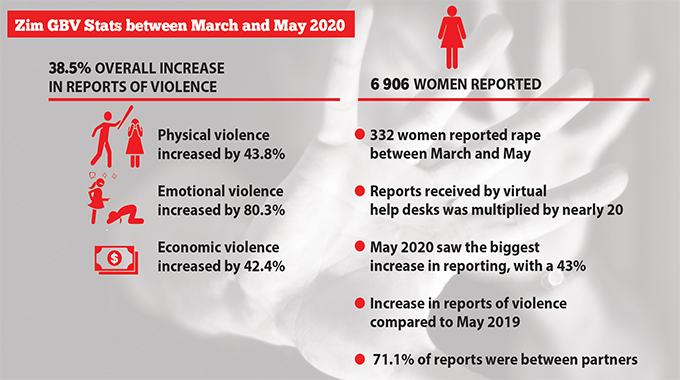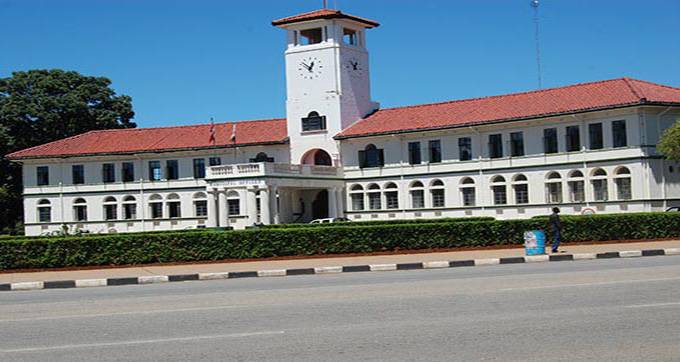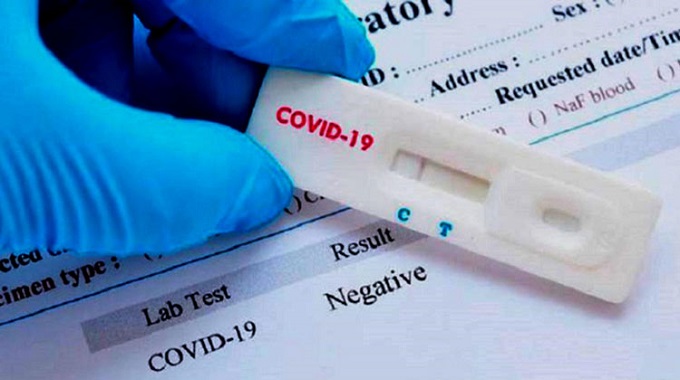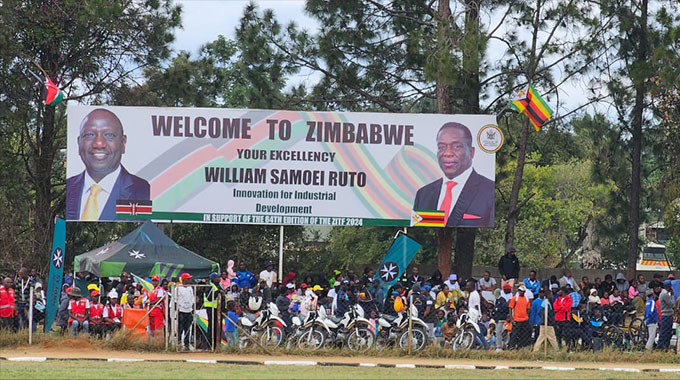Statistics show spike in gender-based violence during lockdown period

Thandeka Moyo-Ndlovu/Sukulwenkosi Dube-Matutu, Chronicle Reporters
PARLIAMENT has called for establishment of one stop centres across all districts in the country for gender-based violence (GBV) survivors, as statistics show an increase in abuse during the national lockdown period.
The Parliamentary Portfolio Committee on Women Affairs, Community, Small and Medium Enterprise Development is conducting a tour of one stop centres in the country on a fact-finding mission to ascertain the level of public service delivery related to gender-based violence.
One stop centres are meant to improve access to quality and comprehensive services for survivors of gender-based violence under one roof.
So vicious were attacks and abuse that one organisation catered for a survivor whose arms were broken; another survivor had her face cut with an axe, and another had broken legs.
According to the recently released Stopping Abuse and Female Exploitation (SAFE) Zimbabwe Technical Assistance Facility report produced together with the Women’s Coalition of Zimbabwe, violence against women and girls shot up by 38,5 percent during the first two months of the lockdown (April to May 2020) compared to the preceding two months before the national lockdown (February to March 2020).
Gender activists attributed the crisis to Covid-19’s impact on the socio-economic status of many Zimbabweans.
From March when Covid-19 first hit the headlines in Zimbabwe to the end of May, about 6 906 women reported abuse to five major non-governmental organisations that deal with gender-based violence.
These organisations include Musasa, Adult Rape Clinic, Real Opportunities for Transformation Support (ROOTS); Women and Law in Southern Africa (WLSA) and the Zimbabwe Women’s Lawyers Association (ZWLA).
Physical violence increased by 43.8 percent, emotional violence increased by 80.3 percent, and economic violence increased by 42.4 percent during lockdown.
The report shows that 332 women were raped during the three months under review although it is feared many victims could not access services or make reports.
“There was a 38.5 percent overall increase in reports of violence to NGOs providing services to violence against women and girls over the two months during lockdown (April to May 2020) compared to the two months before lockdown started (February to March 2020). Physical violence increased by 43.8 percent, emotional violence increased by 80.3 percent, and economic violence increased by 42.4 percent,” reads the report.
“These overall figures mask an even more dramatic increase in reports received by virtual platforms -phone calls, WhatsApp, and SMS. For example, the number of reports received by Musasa virtual helpdesks was multiplied by nearly 20 between March and April 2020.”
According to the report, intimate partner violence increased proportionally during lockdown relative to reports of non-partner violence when compared to data from the same period the previous year.
“About 71.1 percent of reports of violence in March to May 2020 were reported as partner violence, a slight increase on the previous year (68 percent) as a proportion of all reports of violence. One NGO supported a survivor both of whose arms were broken; another survivor had her face cut with an axe, and another had broken legs.”
Other changes in types of violence were noted in in the report which include increases in child marriage and forms of non-partner violence related to deprivation and coping strategies in the Covid-19 context.
“The Covid-19 crisis has exacerbated poverty, which increased tensions in the household by limiting the ability of women to “find ways to put food on the table” and exacerbating men’s frustrations for not being able to “provide for the family”. Poverty also increased rates of sexual abuse against the most vulnerable women (including young women and women with disabilities). The poorest women are less likely to own or have access to a mobile phone, especially because prices of data have spiked, and therefore face greater barriers to accessing support through social media channels.”
Speaking on Monday during a visit to the Gwanda one stop centre the committee chairperson, Cde Chido Madiwa who is also the Member of Parliament for Mutasa North Constituency, said Matabeleland South Province only had one makeshift facility which was not fully equipped.
“We are here on a fact-finding mission to see how Government is reacting to issues of gender-based violence. We have one stop centres that have been established across the country. We have seen the one stop centre in Gwanda though it’s very small and as Parliament we will be pressing to ensure that we have well established one stop centres across the country as they are very helpful. We need more resources to be channeled towards establishment of one stop centres. We will lobby for allocation of funds yearly under the fiscus towards once stop centres. One stop centres are important as they bring several services under one roof which include psychosocial support, health services and legal services for gender-based violence survivors.
“As Parliament we want to establish many centres across the nation and see what can be done to ensure that they are accessible,” she said. -@thamamoe /@DubeMatutu










Comments